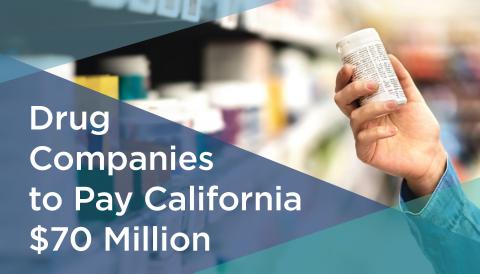
California Attorney General Xavier Becerra announced settlements against pharmaceutical companies for illegally delaying generics. The companies will pay the state nearly $70 million. It includes the largest pay-for-delay settlement in any state. Also, it’s the first time that a state has secured injunctive relief against future pay-for-delay agreements.
A pay-for-delay agreement is when a drug company pays a competitor to slow research, marketing, or sales of lower-priced prescriptions. These back-room deals can cause consumers to pay as much as 90% more for drugs.
Settlements involve the following:
• Teva delayed entry of generic competition through four pay-for-delay agreements that illegally maintained its monopoly over Provigil sales between 2006 and 2012. The drug treats narcolepsy. The state secured $69 million for California and a 10-year injunction prohibiting Teva from entering into pay-for-delay agreements. A $25,250,000 consumer fund will be created for California residents who purchased Provigil, Nuvigil, or Modafinil during this timeframe. Money from the settlement will also be used to strengthen California’s investigative and enforcement actions.
• Teva, Endo Pharmaceuticals, and Teikoku entered into pay-for-delay agreements for Lidoderm, a medical patch to relieve shingles pain. The state secured an eight-year injunction against further pay-for-delay agreements and a payment of $760,000. The state also secured a 20-year injunction against Teikoku.
Assemblymember Jim Wood (D-Santa Rosa), partnering with California’s Attorney General Xavier Becerra, has introduced AB 824 to stop pharmaceutical companies from pocketing billions in profits with a pay-for-delay practice.
Californians who believe they are victims of Teva’s alleged misconduct can file a form and will be notified when the claims process is established.

